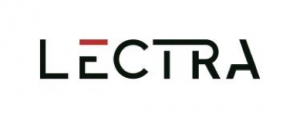 PARIS — April 25, 2024 — The Lectra Observatory, dedicated to innovation and transformations in the fashion, automotive and furniture markets, identifies the main regulations and proposals governing traceability and transparency in the fashion industry. They fall into three major categories: increased due diligence for players in this sector, heightened consumer information requirements and the implementation of new entry barriers to major regional markets.
PARIS — April 25, 2024 — The Lectra Observatory, dedicated to innovation and transformations in the fashion, automotive and furniture markets, identifies the main regulations and proposals governing traceability and transparency in the fashion industry. They fall into three major categories: increased due diligence for players in this sector, heightened consumer information requirements and the implementation of new entry barriers to major regional markets.
Leader in technology solutions accelerating the transition to Industry 4.0, Lectra launched its Observatory in December 2023, in its 50th anniversary year, that decrypts the underlying trends impacting the fashion, automotive and furniture markets, whether that be through technological evolution, societal and environmental challenges or business model transformations.
“After our first white paper on the arrival of Industry 4.0 and its impact on industrial production efficiency, our Observatory has chosen to focus its new research on challenges related to Corporate Social Responsibility. Studies highlighting the social and environmental impacts of the fashion industry have multiplied in recent years. The industry as a whole must become more sustainable. But this implies improved traceability of materials used and complete transparency throughout complex value chains. Our white paper covers the major regulations that are already transforming and will continue to shape traceability and transparency practices,” says Maria Modroño, chief marketing & communications officer at Lectra.
The Lectra Observatory’s “Mapping of global traceability and transparency regulations for sustainable fashion” white paper is available to read online. It outlines 22 current and future regulations in Australia, Canada, the United States and Europe.
They are structured into three major categories: increased due diligence in terms of sustainability, the growing need to provide transparent consumer information, and the implementation of new entry barriers to European and North American markets, the latter being mainly to combat forced labor, poor working conditions and environmentally unfriendly practices.
“Regulations are crucial, as they encourage the implementation of more sustainable practices and create common standards. By mapping the most advanced transformations, whether they are already in force or in the process of being implemented, the Lectra Observatory has fulfilled its objective of analyzing key transformations and helping Lectra customers and our ecosystem partners successfully adapt to them,” Modroño concludes.
Posted: June 4, 2024
Source: Lectra




